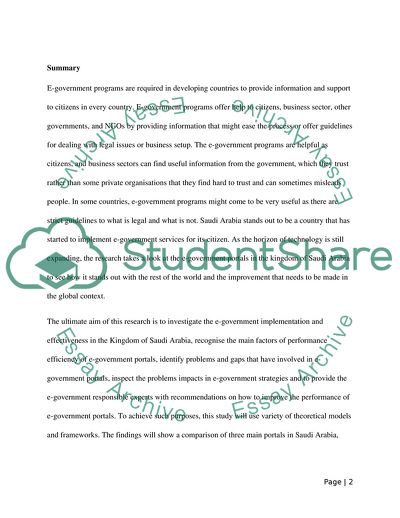Cite this document
(E-Government Portals Efficiency and Performance in Saudi Arabia Research Proposal Example | Topics and Well Written Essays - 1250 words, n.d.)
E-Government Portals Efficiency and Performance in Saudi Arabia Research Proposal Example | Topics and Well Written Essays - 1250 words. https://studentshare.org/information-technology/1880613-e-government-portals-efficiency-and-performance-in-saudi-arabia
E-Government Portals Efficiency and Performance in Saudi Arabia Research Proposal Example | Topics and Well Written Essays - 1250 words. https://studentshare.org/information-technology/1880613-e-government-portals-efficiency-and-performance-in-saudi-arabia
(E-Government Portals Efficiency and Performance in Saudi Arabia Research Proposal Example | Topics and Well Written Essays - 1250 Words)
E-Government Portals Efficiency and Performance in Saudi Arabia Research Proposal Example | Topics and Well Written Essays - 1250 Words. https://studentshare.org/information-technology/1880613-e-government-portals-efficiency-and-performance-in-saudi-arabia.
E-Government Portals Efficiency and Performance in Saudi Arabia Research Proposal Example | Topics and Well Written Essays - 1250 Words. https://studentshare.org/information-technology/1880613-e-government-portals-efficiency-and-performance-in-saudi-arabia.
“E-Government Portals Efficiency and Performance in Saudi Arabia Research Proposal Example | Topics and Well Written Essays - 1250 Words”. https://studentshare.org/information-technology/1880613-e-government-portals-efficiency-and-performance-in-saudi-arabia.


